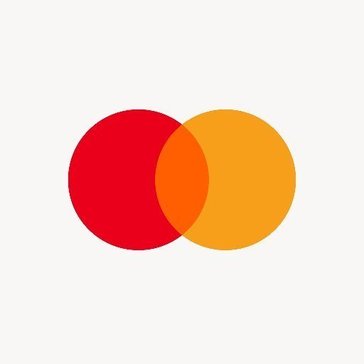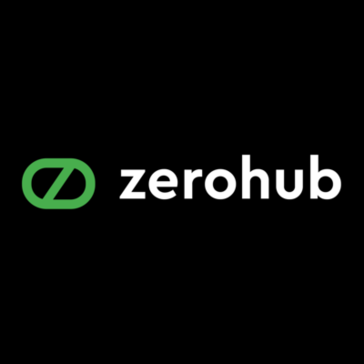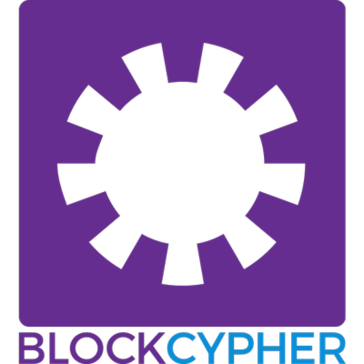Description

Mastercard Blockchain

Zengo Wallet
Comprehensive Overview: Mastercard Blockchain vs Zengo Wallet
Mastercard Blockchain
a) Primary Functions and Target Markets
Mastercard Blockchain is designed to provide a secure and efficient environment for businesses to transact across multiple sectors. The primary functions include:
- Identity Verification: Using blockchain technology to enhance the security and reliability of verifying identities in transactions.
- Cross-border Payments: Facilitating quicker and more efficient international transactions by circumventing traditional banking processes.
- Supply Chain Management: Improving transparency and traceability in supply chain operations.
- Loyalty Rewards: Allowing businesses to create and manage loyalty reward programs more effectively.
Target Markets: Mastercard Blockchain primarily targets enterprises and large financial institutions looking to optimize their operations and improve security in transactions. It also appeals to the wider fintech ecosystem aiming for innovation in digital currency and blockchain solutions.
b) Market Share and User Base
Mastercard Blockchain operates mainly in the B2B sector and is not widely reported on in terms of user base in the same manner as consumer products. Its market share is presently limited compared to consumer-targeted blockchain solutions (like cryptocurrencies) but it plays a significant role in influencing enterprise solutions in the blockchain space.
c) Key Differentiating Factors
- Enterprise Focused: Unlike consumer-based solutions, Mastercard Blockchain is tailored to businesses, emphasizing integration and scalability.
- Partnership and Integration: It leverages Mastercard's existing global network for widespread integration, providing robust frameworks for enterprises to adopt blockchain technology.
- Compliance and Security: Offers high levels of compliance and security, critical attributes for institutions handling sensitive financial data.
ZenGo Wallet
a) Primary Functions and Target Markets
ZenGo is a non-custodial cryptocurrency wallet that aims to simplify the crypto experience for users. Its primary functions include:
- Keyless Security: Utilizes advanced cryptographic techniques to remove the need for private keys, offering a user-friendly and secure solution.
- Multi-Currency Support: Allows users to store a wide variety of cryptocurrencies in one place.
- Easy Transfers: Facilitates secure and easy transfers between users without complicated wallet addresses or passphrase handling.
- Earning Interest: Provides features for earning interest on stored cryptocurrencies.
Target Markets: ZenGo targets individual cryptocurrency users ranging from beginners to advanced users who value security and ease of use in managing digital assets.
b) Market Share and User Base
ZenGo is one of the notable wallets in the cryptocurrency space and has a growing user base, particularly among users who prioritize security and usability without the technical complexities of traditional crypto wallets. In terms of market share, it's smaller compared to colossal players like Coinbase, but its unique security proposition and simplicity attract a dedicated user segment.
c) Key Differentiating Factors
- Keyless Security System: Unlike traditional wallets that use private keys, ZenGo employs a threshold cryptography approach that enhances security and account recovery, providing a more streamlined user experience.
- User-Focused Interface: Designed for simplicity, ZenGo offers a highly intuitive interface that appeals to users new to cryptocurrency.
- No Custodial Services: ZenGo operates as a non-custodial wallet, meaning users retain full control and ownership of their funds without relying on third-party custody.
Comparative Summary
The primary distinction between Mastercard Blockchain and ZenGo Wallet lies in their target markets and functionalities. Mastercard Blockchain serves enterprises with a focus on expanding the blockchain ecosystem in supply chains, payments, and identity verification, offering robust, scalable solutions integrated into business processes. ZenGo Wallet, on the other hand, targets individual users seeking a secure, user-friendly way to manage their cryptocurrencies. While Mastercard focuses on B2B enterprise solutions, ZenGo emphasizes consumer usability in the crypto world, championing security and ease without traditional private key management.
Conclusion
Both products excel in their respective industries—Mastercard in the corporate blockchain solution space and ZenGo in the consumer-friendly crypto wallet niche. Their differentiation in approach and target market defines their unique value propositions and positions in the broader digital financial ecosystem.
Contact Info

Year founded :
Not Available
Not Available
Not Available
Not Available
Not Available

Year founded :
2018
Not Available
Not Available
Israel
http://www.linkedin.com/company/zengo
Feature Similarity Breakdown: Mastercard Blockchain, Zengo Wallet
Mastercard Blockchain and Zengo Wallet are two distinct products within the blockchain and cryptocurrency space. Here's a breakdown of their feature similarities and differences:
a) Core Features in Common
-
Blockchain Technology:
- Both utilize blockchain technology, though in different contexts; Mastercard Blockchain focuses on enterprise solutions, while Zengo Wallet is consumer-oriented.
-
Security:
- Security is a paramount feature for both. Mastercard Blockchain emphasizes secure transactions and data sharing for enterprises. Zengo uses advanced security measures to protect user assets.
-
Transaction Facilitation:
- Mastercard Blockchain enables secure and efficient transaction processes for businesses. Zengo facilitates the secure management and transfer of cryptocurrency assets.
b) User Interface Comparison
-
Mastercard Blockchain:
- Primarily designed for use by enterprises, its interface is likely more technical and business-focused, integrating with enterprise systems and providing dashboards and analytics suitable for business use.
-
Zengo Wallet:
- The user interface is consumer-friendly, designed to ensure ease of use for managing cryptocurrencies. It typically emphasizes simplicity, with intuitive navigation and straightforward access to wallet features.
c) Unique Features
-
Mastercard Blockchain:
- Enterprise Solutions: Offers applications tailored for B2B transactions, supply chain management, and other business-specific functions.
- Interoperability: Designed to be compatible with various business systems and can integrate with multiple blockchain networks.
- Regulatory Compliance: Provides tools and features that assist enterprises in complying with financial regulations.
-
Zengo Wallet:
- Keyless Security: Deploys a unique keyless security system that eliminates the need for private keys, using biometric encryption and threshold cryptography instead.
- Consumer Focus: Includes features like instant wallet recovery, effortless buy/sell options directly within the app, and multi-currency support.
- NFT Support: Offers support for managing non-fungible tokens (NFTs), which is a feature more aligned with consumer interest in the broader crypto space.
In summary, while both Mastercard Blockchain and Zengo Wallet leverage blockchain technology and prioritize security, their use cases, target audiences, and specific features are quite different. Mastercard Blockchain focuses on enterprise-level applications, emphasizing transaction efficiency and compliance, whereas Zengo Wallet is designed for the everyday consumer, prioritizing ease of use and innovative security measures.
Features

Not Available

Not Available
Best Fit Use Cases: Mastercard Blockchain, Zengo Wallet
Mastercard Blockchain and Zengo Wallet cater to different aspects of the blockchain and digital asset ecosystem, serving varied needs across business types and scenarios. Here’s a breakdown of their best fit use cases:
Mastercard Blockchain
a) For what types of businesses or projects is Mastercard Blockchain the best choice?
-
Financial Institutions and Payment Processors:
- Cross-Border Payments: Businesses involved in international transactions could benefit from blockchain's transparency, speed, and reduced intermediaries, leading to cost-effective cross-border payments.
- Fraud Prevention and Identity Verification: Financial entities can utilize the secure and immutable ledger of blockchain for enhancing fraud prevention and streamlining identity verification processes.
-
Supply Chain and Logistics:
- Traceability and Transparency: Companies that require detailed visibility into their supply chain, such as those in the food, pharmaceuticals, or luxury goods sectors, can greatly benefit from the immutable records facilitated by Mastercard Blockchain.
-
Loyalty Programs:
- Tokenization of Rewards: Businesses aiming to innovate their loyalty programs can leverage blockchain to tokenize reward points, making them more versatile and interoperable across different platforms.
-
Trade Finance:
- Smart Contracts: Enterprises engaged in trade finance can use blockchain to automate contract executions with smart contracts, ensuring greater speed and reduced chances for errors.
Zengo Wallet
b) In what scenarios would Zengo Wallet be the preferred option?
-
Crypto Beginners and General Consumers:
- User-Friendly Interface: Zengo Wallet’s ease of use, particularly its keyless security infrastructure that simplifies cryptocurrency storage and management, is ideal for those new to the world of crypto or those who prefer simplicity and convenience in managing their digital assets.
-
Retail and E-commerce:
- Crypto Payments: Businesses or individuals wishing to accept or make crypto payments effortlessly can use Zengo Wallet as it supports a range of cryptocurrencies and provides a straightforward interface for transactions.
-
Digital Asset Security:
- Security-Conscious Users: Individuals who prioritize security but want to avoid the complexities of managing private keys will find Zengo Wallet’s keyless security model appealing.
-
Small to Medium-sized Businesses (SMBs):
- Simple Crypto Integration: SMBs looking to integrate cryptocurrency transactions into their business processes without large-scale infrastructure changes or high investment can utilize the simplicity and reliability of Zengo Wallet.
Catering to Different Industry Verticals or Company Sizes
-
Mastercard Blockchain typically caters to larger institutions like banks, large enterprises, and industries such as logistics, trade finance, and those requiring scalable blockchain solutions. Its infrastructure is ideal for businesses involved in complex transactional ecosystems requiring robust security, transparency, and efficiency.
-
Zengo Wallet serves a broader range of users from individual consumers and crypto enthusiasts to SMBs, offering a scalable solution that focuses on ease of use. Its platform is well-suited for industries and company sizes seeking straightforward implementations of crypto transactions.
In summary, Mastercard Blockchain is best suited for entities looking for comprehensive blockchain solutions in financial transactions and supply chains, while Zengo Wallet is preferred for individuals and smaller businesses needing simple and secure access to cryptocurrency services.
Pricing

Pricing Not Available

Pricing Not Available
Metrics History
Metrics History
Comparing teamSize across companies
Conclusion & Final Verdict: Mastercard Blockchain vs Zengo Wallet
When comparing Mastercard Blockchain and Zengo Wallet, it is essential to consider their distinct purposes and offerings. Mastercard Blockchain is a platform primarily focused on leveraging blockchain technology to enhance financial transactions and services, including security, transparency, and efficiency. On the other hand, Zengo Wallet is a cryptocurrency wallet designed for secure storage and management of digital assets, with a focus on user-friendliness and security features such as keyless wallet technology.
Conclusion and Final Verdict:
a) Best Overall Value:
Given their different functions, evaluating overall value depends heavily on the user's needs. For businesses and financial institutions looking to streamline operations and improve transaction security, Mastercard Blockchain offers significant value with its enterprise solutions. However, for individual users focusing on safely managing and transacting cryptocurrencies, Zengo Wallet provides excellent value through its secure and intuitive interface.
b) Pros and Cons:
Mastercard Blockchain:
Pros:
- Offers robust security and transparency for financial transactions.
- Enhances scalability and speed of transactions across networks.
- Backed by a reputable financial company, providing trust and reliability.
- Offers solutions for cross-border payments and transactions, reducing fees and delays.
Cons:
- Primarily designed for large businesses and financial institutions, which may not be directly useful for individual consumers.
- Complexity of integration into existing systems.
Zengo Wallet:
Pros:
- Emphasizes security with keyless wallet technology, minimizing risks of traditional private keys.
- User-friendly design aimed at everyday users, with no complex setup.
- Offers features like facial recognition for added security.
- Supports a range of cryptocurrencies and decentralized finance (DeFi) applications.
Cons:
- Primarily beneficial for cryptocurrency users; limited use for non-digital asset management.
- Dependence on mobile devices could be limiting for some users.
- May lack some advanced cryptocurrency management features sought by power users.
c) Recommendations for Users:
Users trying to decide between Mastercard Blockchain and Zengo Wallet should consider their primary needs. For organizations and companies seeking to enhance their financial transaction processes and explore blockchain technology integration, Mastercard Blockchain is the ideal choice. It provides a comprehensive infrastructure for implementing blockchain solutions within the business context.
For individual users who prioritize having a secure and accessible platform for managing and transacting with cryptocurrencies, Zengo Wallet is highly recommended. Its focus on ease of use and advanced security makes it an excellent choice for both novice and experienced crypto enthusiasts.
Ultimately, the decision should be guided by whether the user's focus is on business-oriented blockchain technology (Mastercard Blockchain) or individual cryptocurrency management and security (Zengo Wallet).
Add to compare
Add similar companies



